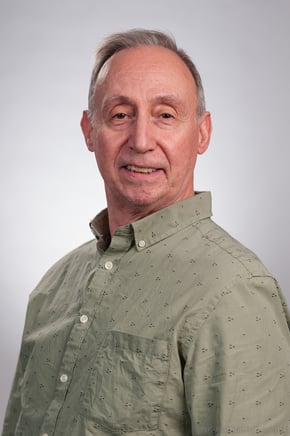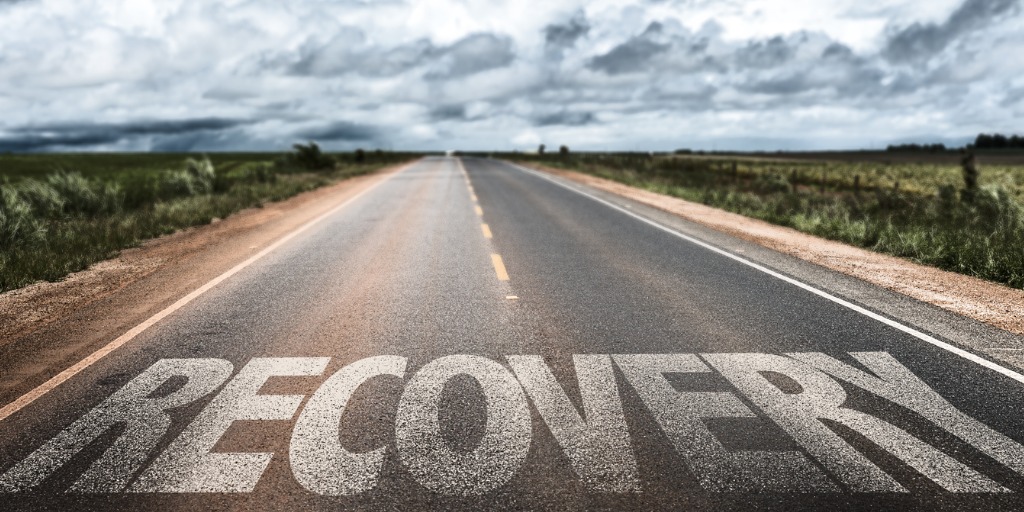Meet Barry Shelton: peer recovery coach at Mass General Brigham Health Plan
Did you know that Mass General Brigham Health Plan was one of the first health plans in the country to have peer recovery coaches on staff? That's why we want to take this opportunity to share some of the life-changing work of our peer recovery coaches and the impact that has on members' access to the different pathways of recovery. Continue reading to meet Barry Shelton, CARC, CPS, peer recovery coach at Mass General Brigham Health Plan.
Can you tell us about your journey before Mass General Brigham Health Plan and what led to your role as a peer recovery coach?
I'm a person in long-term recovery; this past May, I celebrated 20 years of sobriety. I had a previous career as a practicing lawyer in Massachusetts, but I decided to retire from law and do something different. Around that time, my daughter was struggling with a heroin addiction. I believe it was her situation that pushed me to become a peer recovery coach. Happily, my daughter is also in recovery today and has been sober for more than five years. 
Initially, I got involved by volunteering at a peer recovery center part-time. Later on, I worked as an on-call recovery coach, where I would be called by the emergency room when there was an overdose. I would go and sit with overdose survivors and see if there was something I could do for them. After that role, I decided I wanted to coach full-time, so I applied for the job at Mass General Brigham Health Plan. I've been here since April of 2018.
Who do you work and interact with as a peer recovery coach?
I work with our care managers on referrals for various care management services to our members. Of course, I interact with Chris Bonsall, my colleague and fellow recovery coach. I'm on my own a lot of the time, which is one thing I really like about the job. There's a lot of autonomy and a lot of flexibility in terms of how I operate.
When the pandemic hit, I thought we would be in the weeds, but it turned out just the opposite. People really want this service when you are able to engage with them. Trying to connect with people over the telephone is not always easy, but the need is so great. When I call someone new, I tell them who I am and what I do. Then if they are interested in having an extended conversation about working with a coach, we move forward.
As a peer recovery coach, I wear a lot of different hats. I tell people that I'm a personal guide, a motivator, a resource broker, and an advocate. I find a lot of the job is advocating for people who seek recovery—and then—advocating for recovery and the movement itself.
The World Health Organization has identified drug abuse as the number one condition that is stigmatized the most—and alcohol abuse is number 4. There is a tremendous amount of stigma that people with substance use disorders suffer, and I think that's one of the reasons why recovery coaching is so successful—because we’ve been there. We understand some of the troubles and struggles that people go through, and we don't judge. We meet people where they’re at. It's a strength-based approach. We ask them what they are willing to do right now—and we start with that.
What kind of impact does your work have on our members and community?
With all modesty, it has a tremendous impact on people. The current times call for this; people need somebody to lean and rely on right now, and that's what Chris Bonsall and I do. The number of people that we've been able to reach is truly amazing.
You don’t always get immediate success; sometimes it's just a touch or nudge to somebody who might be thinking of recovery but is not quite there yet. Sometimes, that outreach can be enough to encourage somebody into recovery. Other times, the person you reached out to might follow up months later, telling you that they remember your call and now they're ready. It's incredible when you see these outcomes.
In addition, our team can connect members with the resources from our larger group. On the Your Care Circle (YCC) team, there are medical care managers, behavioral health care managers, a nutritionist, a medical equipment care manager, and social care managers we can connect members to.
Why are peer recovery coaches so crucial during a pandemic?
The pandemic has had a profound effect on people trying to achieve and sustain recovery. One of the hallmarks of addiction is social isolation so connecting with people over the phone, or using Microsoft Teams or FaceTime, has been very helpful for people.
What does being a Peer Recovery Coach mean to you?
I see myself as part of a larger movement happening in the recovery field for the last 20 years; that's a movement away from the acute intervention model. We're moving away from the model of intervention and treatment, and then you hit the street. The trend now is towards the long-term management of the condition, which is where I come in, helping people at all stages of change and supporting them in the maintenance phase of recovery. Along the way, we help them discover additional recovery supports such as counseling or getting involved with mutual aid groups like AA, NA, or activity-based groups.
Do you like the work you do?
I love the work I do—I really do. Resiliency is key in recovery, and many of these people keep trying no matter how many times they fail. I admire that. This is the population that I have that I've chosen to spend my time with, and as I said, they really need the service, and they're grateful for our presence. The truth is I only have so much much influence over whether somebody gets into recovery or stays in recovery—they have to do the real work of behavior change, but being part of that process and being able to witness it when it does happen is gratifying.
What message do you have for anyone struggling during National Recovery Month?
Recovery is always possible—and it is possible at any stage. I did this, and you can do it too.
One of the great things about the job is I work with a very diverse population. I've worked with people who are homeless, and I've seen very tough, low-bottom cases find recovery.
I've also helped doctors and lawyers. Recovery does not discriminate.
What's the greatest piece of advice you've ever heard?
I always fall back on the Alcoholics Anonymous serenity prayer, which everybody knows: God grant me the serenity to accept the things I cannot change, the courage to change the things I can, and the wisdom to know the difference.
